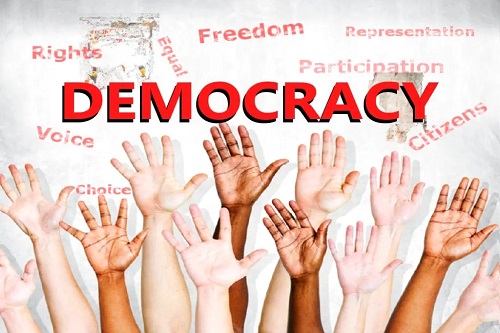IT is no longer news that Asiwaju Bola Ahmed Tinubu has announced his choice of running mate. But long before he did the issue had elicited public interest, concerns, debates and arguments of national proportion.
And it still continues to raise dust over the subject matter of ethnic and religious balancing, leaving behind the critical issue of gender disparity in the political space.
The balancing concerns have been expressed in relation to national unity, fairness, justice, equity, peace and stability of the country. The theoretical construct among divides is the strong opposition to same faith ticket, and the call for the position of the vice-presidential candidate to be chosen in such a manner as to engender ethnic, religious and political balance in the ultimate sense of inclusion.
Tinubu is a consummate politician and one of those who fought for Nigeria’s democracy. He has a national spread of goodwill such that his choice of a running mate is for the complementarity. Nigerians are oblivious of the fact that we have a president who is a Muslim and of the Fulani ethnic group in the North who is about to complete his eight-year tenure.
In the concept of power shift to the South, the ruling party coincidentally has a Moslem as its presidential candidate while the vice presidential position is zoned to the North. The interesting sociological questions remain: are there other ethnic groups in the North other than the Fulani? Are there Christians and gender disparities in the North? In what ways can answers to these questions be harnessed into a national aspiration of unity and inclusiveness rather than create a baggage of agitations, disunity and sometimes violence?
Franz Boas the 19th century anthropologist observed that history and environment mostly shaped societies and that the experiences of a people over time in the environment they live in determine their course of actions and behaviour.
After over 100 years of amalgamation and over 60 years of colonial rule, if people still perceive a sense of injustice, domination, marginalisation, fears, mistrust or insecure in our coexistence, these remain the challenge of our leadership. Such fears or mistrusts constitute an under-investment in our national capacity to make progress as a nation.
Social science research has proven that ethnic diversity in any society is more beneficial for all ethnic groups. It implies that no ethnic group can survive alone, as such all ethnic groups in Nigeria need one another to maximise their potentials. Conflicts arise when there is a perceived sense of domination from one group or the other in place of inclusiveness and positive representations from all groups. The political elite should be protective of all interests regardless of whether majority or minorities, Christians or Moslems, quench the flames of divisiveness and pursue practical wisdom that promotes national interest.
There is no doubt that our colonial history and military rule created certain conditions which under a democracy would be interrogated and negotiated. Nevertheless in all human societies any group that enjoys certain advantages created by circumstances and do not wish to give up even a little of it for peace sake usually create preconditions for agitations and disunity. The political elite, community leaders, religious leaders and youth groups should be sensitive to this fact of life. President Buhari after watching the Rwanda genocide exhibition prescribed tolerance as imperative to co-existence.
Gender inclusion: My wish was that while Tinubu was still searching for a running mate he may necessarily steer in the direction of gender inclusion and balance to neutralize the perceived gender disparity in our patriarchal system and to facilitate the mobilisation of women folk who constitute over 50 percent of the total voters population in Nigeria. Picking a woman as the vice presidential running mate will go a long way to eliminate discrimination, political bias against women rights, and encourage political participation, particularly that not too long ago the National Assembly voted against women bills.
A female vice president will not only raise the bar in governance it will also reflect Nigeria’s image positively in the committee of nations.
The emergence of a female vice president in a ruling party will go a long way to stop the socio-cultural barriers against women making progress politically, socially, economically and affirm the Millennium Development Goals of overcoming the challenges of underdevelopment and poverty eradication. This will enforce social and economic standing of women as partners in the family which is the bedrock of society. In such a scenario the women folk are more likely to mobilise across party lines, ethnic, religious and cultural divides if they see the likelihood of a woman being the vice president of Nigeria.
Achebe said that you cannot understand a man whose language you do not speak, and that language is not just a means of communication but the totality of a man’s world-view. In essence, a man can neither understand nor advocate for women more than they can do for themselves.
As such, constant discrimination against women participation in politics and governance unconsciously eliminate a critical part of the family structure in fulfilling its fundamental functions in shaping of future adults through types of marriages, families and parenting styles. Senator Binta Masi Garba did offer herself and she is eminently qualified.
The problems of insecurity in the country is also adduced to failure of the family in performing its five basic functions in which men and women play mutual and complementary roles in upbringing of children as future adult citizens. The perceived cultural and religious inhibitions against women participation in politics and governance but accepting them as voters, mothers, sisters, daughters and wives need to be re-examined with clear thinking. Nation building is a joint task of men and women, old and young.



